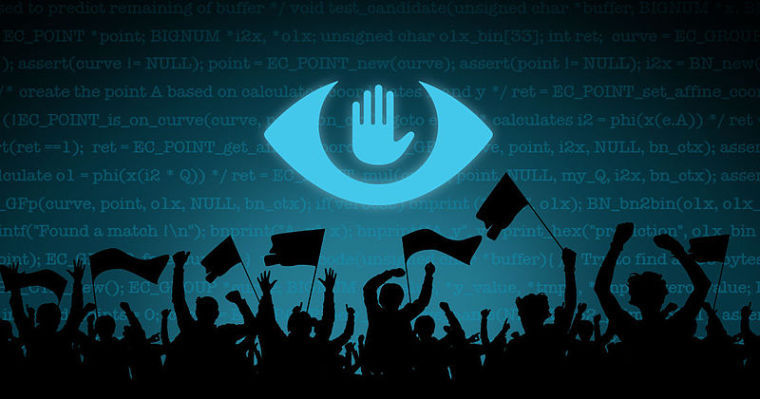Mass surveillance and NSA practices spark protest
Websites participating in the protest are displaying this banner to show their support for legislation curbing the National Security Agency’s surveillance.
February 13, 2014
Feb. 11 is a day that will live in Internet history. It marks the two year anniversary of the SOPA Blackout protest where websites went offline to protest the controversial Stop Online Piracy Act.
It also marks the date a year and a month to the day of the suicide of Aaron Swartz, Internet activist and computer programmer who helped propel the website Reddit to the 69th most visited website in the world.
This year a new protest entitled “The Day We Fight Back” was held in Washington, D.C. and on thousands of websites around the world in order to raise awareness and fight against mass surveillance.
The protesters demanded laws be enacted that would curtail the governments ability to spy on civilians
Dr. Robert Schiaffino and Professor Aaron Kershenbaum, professors in the computer science department both gave their opinions on mass surveillance and the National Security Administration.
One of the recurring topics was the ability to misuse the data that is being collected by the NSA.
Kershenbaum proposed an alternative that may alleviate distrust that civilians have: allow people to see their personal files.
“In the current state, the NSA can collect all of this information and come to conclusions that just aren’t true at all,” Kershenbaum said. “One of the things that are important is for people to know what information is in there about them. There is actually a law that is in place for the credit agencies where they must tell people what information they have on them so that it can be disputed.”
Aside from the ethical dilemma that is presented here, there is a glimmer of hope for the technology field. Dr. Schiaffino spoke of one of the main problems in gathering all this data.
“What’s the point of collecting all this data if you’re not going to act on it?” he said. “The information is there to be used and when it’s not it shows ineptness on the side of the US government. This technology wasn’t available years ago; the people mining this data, there is an enormous capacity for mischief.”
When asked if there were any positives to the collection of the data, Kershenbaum spoke about analyzing medical information and how useful the data could be in preventing new diseases.
He offered a scenario where the amount of air travel someone does was correlated to respiratory disease to see if there was a connection.
“There is a lot of good that could be achieved with this information, we just need to utilize it,” Kershenbaum said.
Students were not so forthcoming about the issue.
Every individual questioned on the topic declined to be interviewed, specifically citing fear that their involvement could affect them later on in life when applying for jobs.








